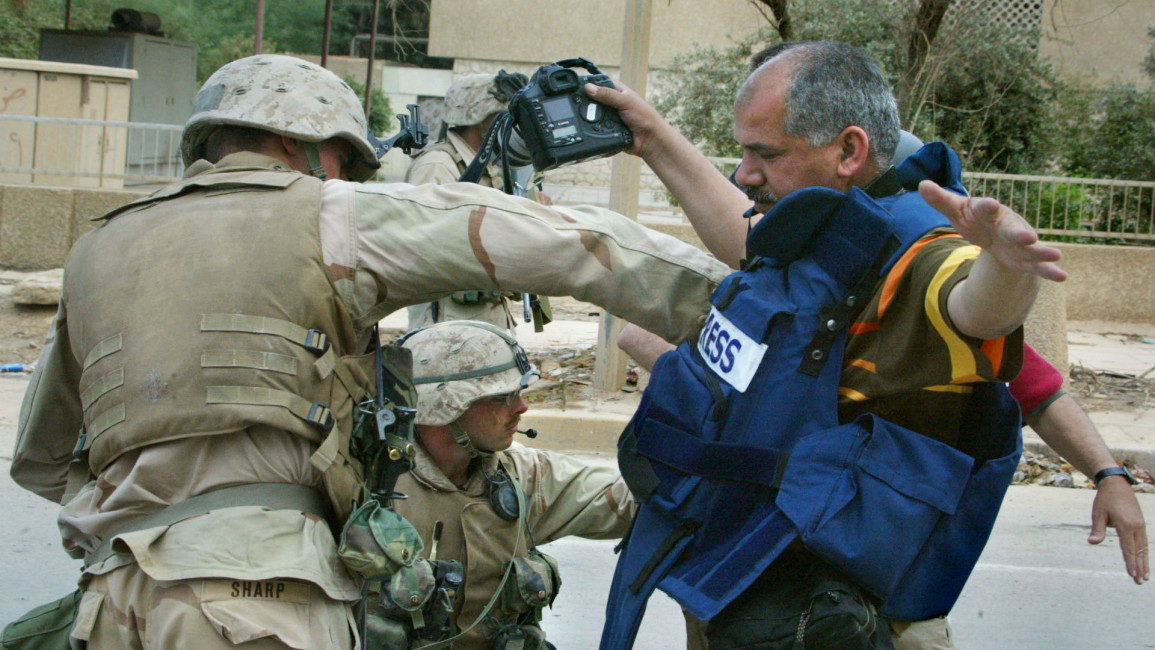New US military manual: Journalists can be 'the enemy'
New US Defence Department guidelines allow military commanders to punish journalists and indefinitely detain them if they believe journalists are sympathising or cooperating with the enemy.
Experts in military law and journalism say that the Law of War manual published in June contains a vaguely worded provision that military commanders could interpret broadly.
Commanders could censor journalists, ask them to leave military bases or even detain them as "unprivileged belligerents," which has been described as equating journalists to combatants, for any number of perceived offenses.
'Unprivileged belligerent'
A person deemed an "unprivileged belligerent" is not entitled to the rights afforded by the Geneva Convention, so a military commander could detain any reporter considered an "unprivileged belligerent" indefinitely without charge.
"Reporting on military operations can be very similar to collecting intelligence or even spying. A journalist who acts as a spy may be subject to security measures and punished if captured," the manual says.
However, the manual does not specify what could be perceived as spying or even the circumstances under which a commander can "punish" a journalist.
"I'm troubled by the label 'unprivileged belligerents,' which seems particularly hostile," said Kathleen Carroll, Associated Press executive editor.
"It sounds much too easy to slap that label on a journalist if you don't like their work, a convenient tool for those who want to fight wars without any outside scrutiny."
Ken Lee, an ex-Marine and military lawyer who specialises in "law of war" issues and is now in private practice, said it was worrisome that the detention of a journalist could come down to a commander's interpretation of the law.
If a reporter writes an unflattering story, "does this give a commander the impetus to say, now you're an unprivileged belligerent? I would hope not," Lee said.
Policy or guidance?
Defence Department officials said the reference to "unprivileged belligerents" was intended to point out that terrorists or spies could be masquerading as reporters.
In an interview with National Public Radio (NPR), Charles Allen, a Pentagon lawyer was challenged to point to any example in modern history where military operations were jeopardised by field reporting, to which Allen responded: "I don't have specific cases in mind".
"Your manual is concerned with bad journalistic apples of whom you can offer no examples," said Bob Garfield, the NPR interviewer.
"I, on the other hand, can offer many examples of military misfeasance and malfeasance and cover-ups and atrocities. My concern is that in the hands of such a bad apple commander, the manual could be used as a document of impunity for commanders who are just trying to operate badly under the radar, to save themselves from embarrassment, prosecution or worse."
Another provision in the manual says that "relaying of information" could be construed as "taking a direct part in hostilities." Officials said that is intended to refer to passing information about ongoing operations, locations of troops or other classified data to an enemy.
US defence officials said the manual describes the law for informational purposes and is not an authorisation for anyone to take any particular action regarding journalists and the manual is not policy and not "directive in nature".



